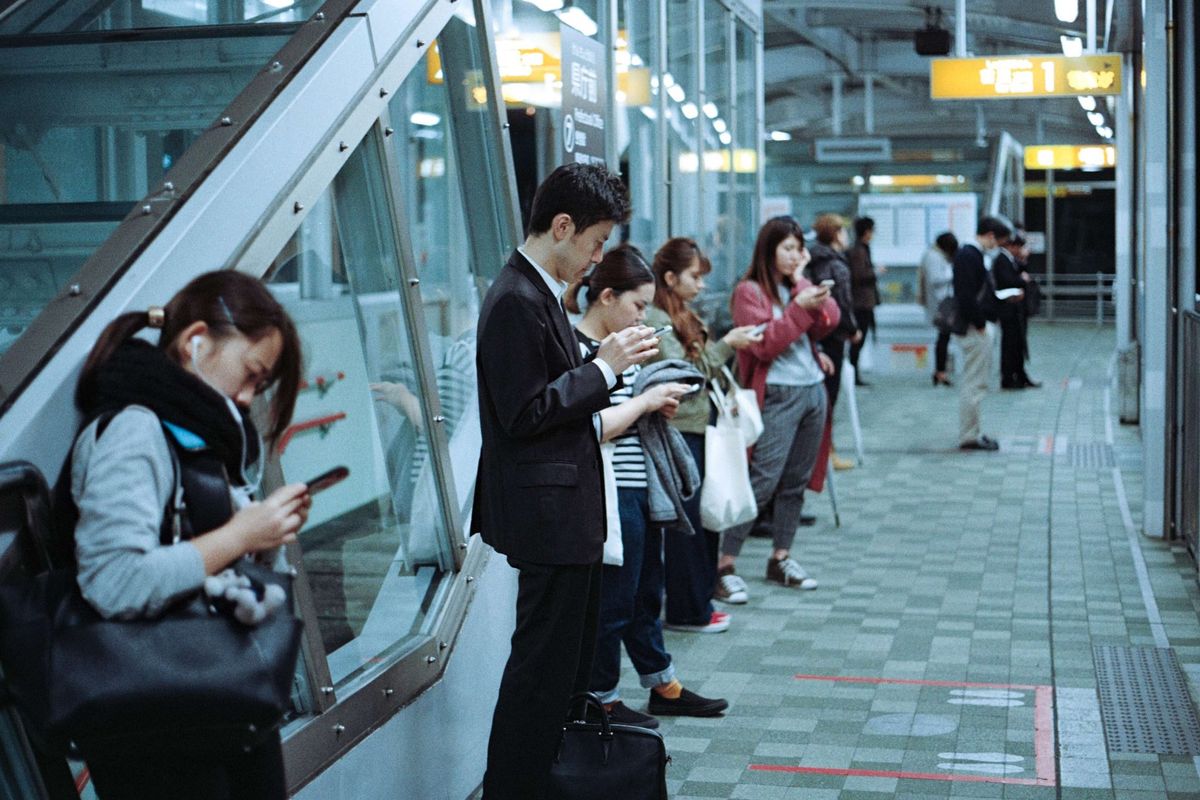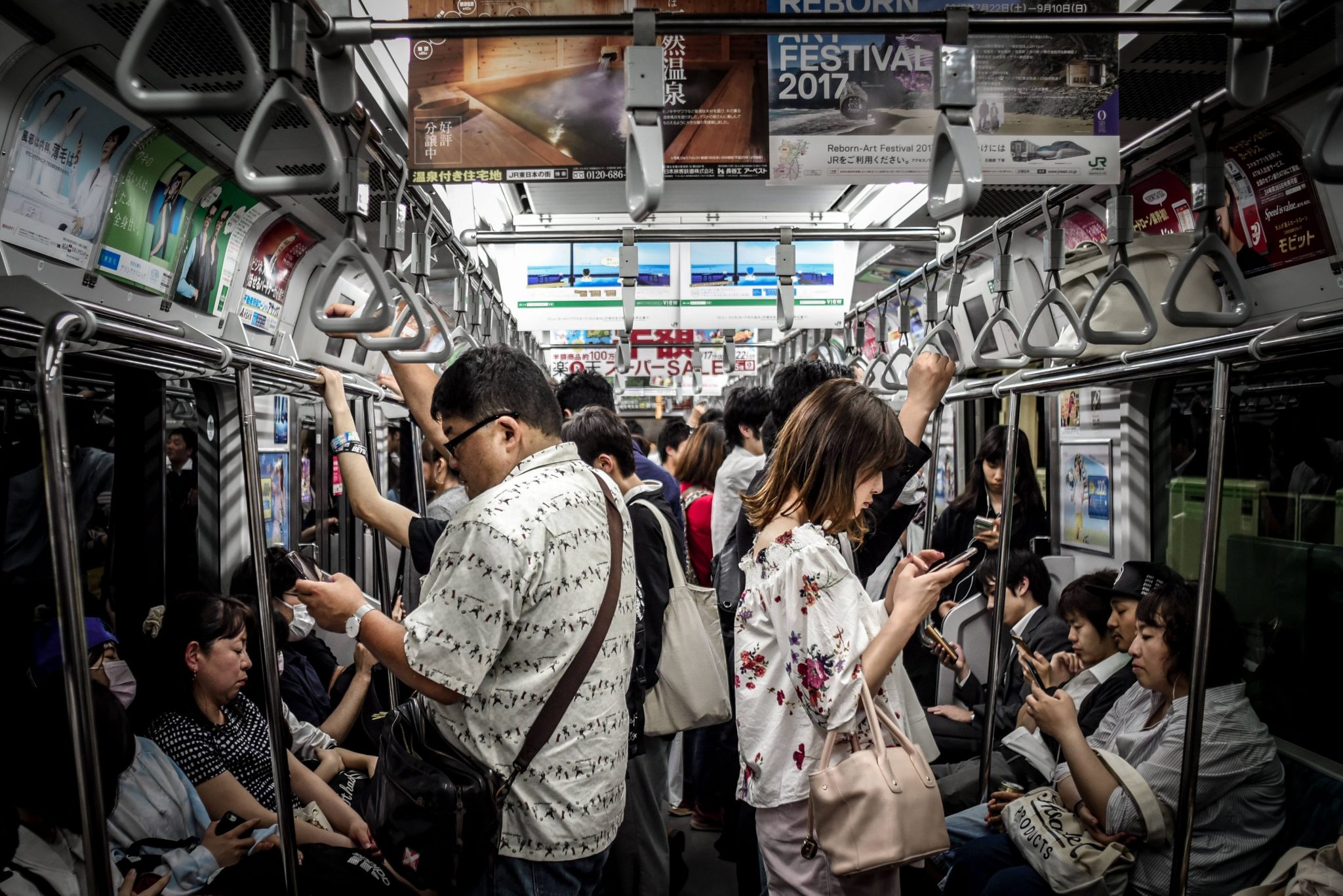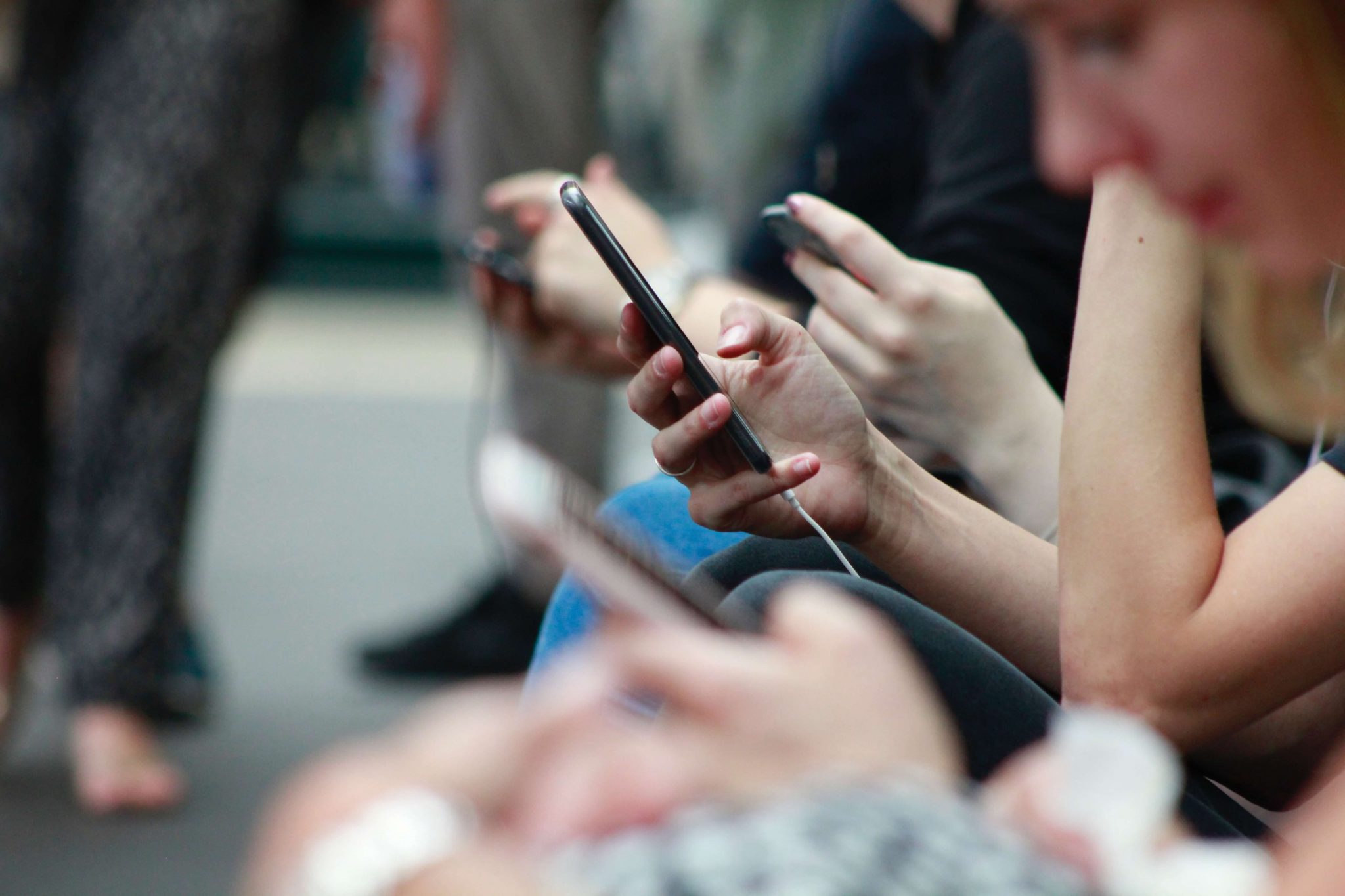Towards a conscious use of our phones

If you read my blog regularly, you know I am a big fan of deep work, and quite critical with social media. I don’t have any social network account, and try to disable or at least reduce notifications as much as possible.
That may look like a ambiguous stance, given the fact that I am a huge fan of technology, the internet and location independence (thanks to the previous two) as essential tools to empower people.
However, I find myself wondering a lot these days about the future of technology, and whether we are going in the right direction or not. Pushed by forces such as commercial interests, an increasing hunger for our data, often in spite of our privacy, and more control from some governments, technology is undeniably transforming our society as a whole and each one of us as individuals.
Phombies and Phonkeys
The urban term phombie refers to people who spend the whole day looking at their screens in an emotionless daze. You’ve seen them walking on the streets, at the bus station, in the supermarket, and even in front of you when having a beer with friends…
Often, when traveling on the metro, it makes me feel nervous. You look around you, and there they are, gazing at their screens, almost standstill. Completely unaware of the world surrounding them. Sometimes it gets to the point where I don’t pick up my phone even if I need to know if I should get off in the next station or not. It may sound weird, but I don’t want to get infected.
And the problem is not that everyone is looking at their screens, not even the apps they are starting at (Instagram, Mango, Facebook, WhatsApp…), is what they are actually doing on them…
A little experiment
Due to the celebrations of the e-Residency week and the fifth anniversary of the e-Residency Program of Estonia, me and my partner spent the week touring Europe to talk in different events from the Estonian embassies and workshops we had organized. A lot of flights, bus trips and waiting at stations and airports.
As a little experiment, I started to observe what others were doing at their phone screens.
The selection of Apps was pretty much what I was expecting: a combination of social media (especially Instagram) and WhatsApp. Many young girls were also immersed in famous online shop apps such as Zara or Mango. But they all had one thing in common.
The way they interacted with the apps.
At a glance, and considered individually, there was nothing wrong with how one person scrolled through her Instagram feed, or how another checked his WhatsApp conversations, but when watching them as a group, something seemed to be off.
They were actually doing nothing.

Schizoid behaviors
One girl was looking at her Instagram feed. She would scroll down at light-speed, stopping on some photos just a millisecond to like them with a double tap, and then frantically go to the next one. She did not even stop long enough in any of them to appreciate the picture.
Then, after around 20-25 photos, she stopped all of a sudden and went up again, stopping in one photo. She clicked on the photo, scrolled down at the comments (too fast to read any of them), went back, clicked again on the photo, stared for a moment, then went back. It was not one of the photos she had liked.
Two minutes later, she opened Instagram again. The pics were exactly the same. I don’t know if she even had internet connection. Nevertheless, she started again the same loop.
Another guy was looking through his WhatsApp conversations. There was nothing new there. No notifications, no new messages, no badges, nada. However, he scrolled endlessly through the list of conversations, up and down. He would click on one conversation and then exit, scroll down to another, scroll up, click on the same conversation again and go back to the list.
That continued for around 3-4 minutes. Then he locked up the phone, to immediately unlock it and enter again in WhatsApp, like waiting for a new message, something, to appear there.
Another guy really left me with a feeling of restlessness. He did not even open any app. He was just scrolling left and right on the home screen, locking and unlocking his phone like a maniac.
Phonkeys
These are just some examples, but none of the people I watched were actually doing anything useful on their phones. I mean something purposeful, like sending an email or reading an article beginning to end.
There was no conscious or mindful activity happening in those brains.
It was scary. We are getting used to mindlessly scroll up and down (or left and right) our screens with no purpose, reason or logic at all.
I know, you are bored, so what’s wrong with that? Well, everything. Not just the fact that you are basically wasting time with these apps instead of talking to the people around you, or doing something useful like reading a book, writing something, or just thinking.
The problem is that we are automating that behavior. We are training our brains to be overstimulated. To be continuously consuming information, as much information as possible, and to endlessly switch from one source of stimuli to the other. If there are no further stimuli, something switches off in our brains and we become phonkeys, rubbing up and down our gadgets in search of more.
That has obviously consequences: lower attention spans, inability to focus, or unplug… But nobody is actually measuring the consequences of training our brains to identify this schizoid behavior as “normal”.

Technology is becoming more ubiquitous… And more obnoxious.
When the Google Glasses were announced, I had mixed feelings about them. On the one hand, it was certainly an interesting gadget, and a hint on the things to come in the field of augmented reality. On the other hand, I could not imagine myself living in a world where everyone around me was wearing them.
Was this person recording my movements, or just staring at me? Is my friend listening to what I say while I talk to him, or checking his Instagram account? Or some other augmented reality information being shown to him that happens to be more interesting that my conversation?
Luckily the Google Glasses project did not reach enough momentum to become a thing (mainly because they were ugly), but there is still a plethora of gadgets to measure and gamify every aspect of your life, from the steps you take to how you sleep. Somehow, we’ve been convinced that we need them to be healthy of sleep well.
Even if you don’t use gadgets, you cannot escape from them. In virtually every place I visit now, there seems to be someone with a drone. From the terraces of Chiang Mai to the coves of Rijeka. Apart from the privacy concerns (I don’t want to be recorded without my permission), they are noisy and obnoxious.
A conscious use of technology starts with our devices
Technology is the force that moves the world forward. I am a strong supporter of technology, remote work, internet, online companies, online banking… There is nothing wrong with using your phone, tablet or laptop at the airport, or the bus, or anywhere else, if it serves a purpose, or to enjoy some good entertainment time.
But we need to use technology in a conscious way. We need to use our devices, as opposed to being used by them.
Next time you are about to pick up your phone because you have been waiting for one minute at the metro station, ask yourself why you are doing that. Do you need your phone, or are you just bored?
Don’t become a phonkey, staring mindlessly as you scroll up and down your screen.
Your phone, tablet, computer, and all your other gadgets are just tools. They allow you to do wonderful things, make it possible for you to work online, entertain you, and help you communicate with the people you love. But they can also alienate you. They can be used to abuse your time. They can prevent you from enjoying the world out there, or having that amazing idea that will change everything.
Can you live without a phone?
Some months ago, a fellow nomad asked me about online banking. She wanted to switch to a solution such as Revolut or Transferwise. There was only one caveat: she did not have a smartphone.
I was surprised, so I asked her how she managed to travel without a smartphone. She told me she used an old Nokia for calls and emergency SMS, and that was all. Her story intrigued me, and ever since I’ve been wondering if I could do the same.
As an example, I keep most of my personal money in Revolut. If I go smartphone-less, I would have to replace it with Transferwise (which has a web interface). I don’t use social media, or whatsapp, but I do use Telegram with selected contacts (my parents, sister, and partner) when I really need to talk to them… I need to understand to which extent I rely on my phone now.
The other day I was thinking about the future, and wondered how my life would be when I retire. I definitely pictured myself in front of a piano, or a beautiful landscape. Not in front of a 5” screen.
I’ve had enough of screens. And I am going to be more conscious about how I use technology from now on. What about you?
Conclusion
This post is pretty much a personal reflection on technology, how we use it, how we have integrated it in our daily lives, and an open question about whether we are going in the right direction.
Let’s be more conscious on how we use technology, starting on a more conscious use of our phones.




Comments ()